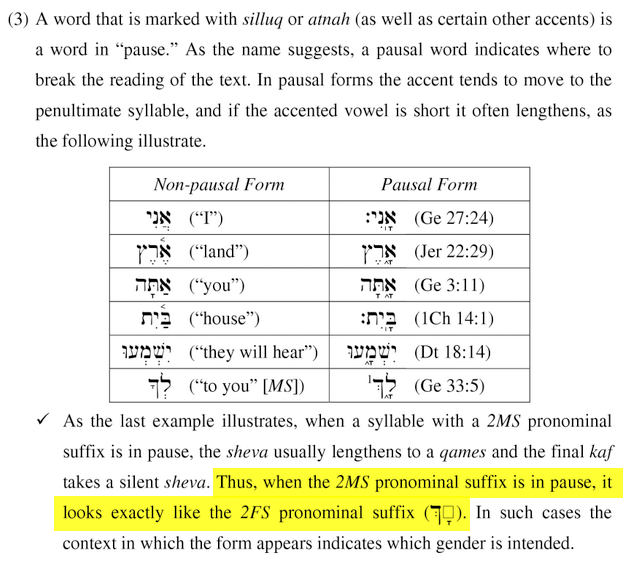Psalm 139:17-18 (KJV), "How precious also are thy thoughts unto me, O God! how great is the sum of them! If I should count them, they are more in number than the sand: when I awake, I am still with thee."
Here's the question I have: If you look at the underlying Hebrew, when the author awakes, he is with you (feminine). Here is the interlinear for reference. You can see that that last pronoun is a second person feminine singular (2fs) reference. It's merely rendered as "thee" or "you" in all translations I can find.. certainly all the major ones. What is going on with the Hebrew here? What is the author doing?
In 139:17, The word translated as "your thoughts, God" (רֵעֶ֣יךָ) is clearly referring "to God (El)" and uses a masculine second person possessive ending ("your").
But in 139:18, once the author "awakes" the author says "I am yet with you (2fs)"... And that ending pronoun is clearly a feminine pronoun reference to God (El). It might be translated as "with you, oh divine woman" (since English does not carry a gendered you). What do you think the reason for this feminine gendered reference is? Am I misreading the Hebrew somehow?

